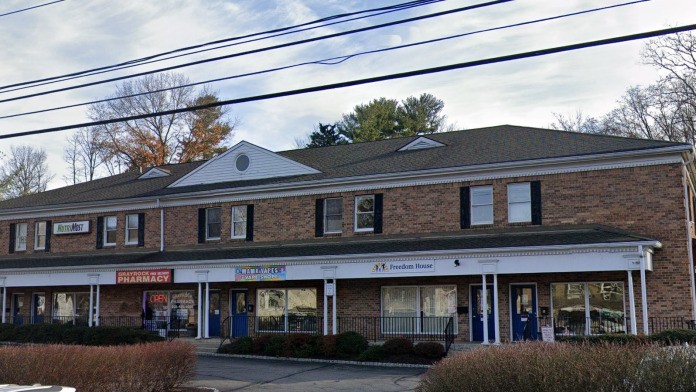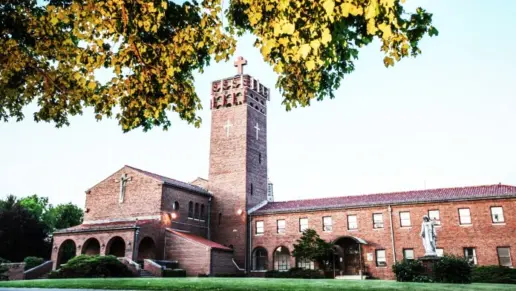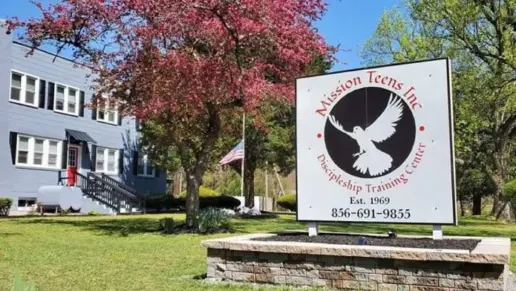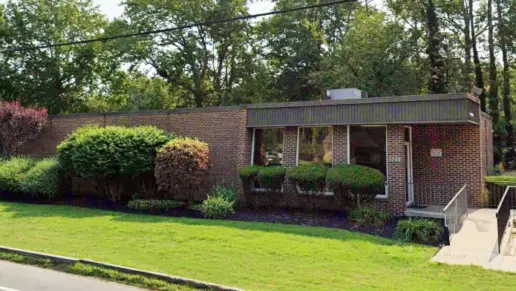The staff at Freedom House were a bunch of crooks who used intimidation(Galindo King) tactics for those coming out of jail to get them not to toe the line otherwise they were going back to prison. Donations made to Freedom House were sometimes given to the staffs family memb ...
About Freedom House
Since 1986, Freedom House has served adults battling substance use and co-occurring disorders in Clinton, New Jersey. This CARF-accredited rehab provides gender-specific residential programs and various levels of outpatient care.
One of the great things I noticed about them is they’ll never deny services based on your ability to pay. They accept some private insurers and NJ Medicaid. If you’re an uninsured New Jersey resident, you may also be eligible for grant funding to get the care you seek.
Their programs emphasize discipline and accountability to help you reach your recovery goals. You can access long-term care or less immersive sessions to meet you where you are in recovery. You’ll benefit from proven therapeutic interventions, including group and individual sessions, case management, educational sessions, peer recovery services and medication assisted treatment (MAT).
A standout feature that caught my eye was their long-term residential program for men. This highly structured track provides a gender-specific approach emphasizing accountability. You’ll participate in tiered phases, gaining more freedom as you progress in treatment. With an average stay of four to six months, the program gives you plenty of time to build and reinforce coping skills while gaining the tools for self-sufficiency.
One of my favorite things about this program is the graduation requirements. They ensure you set yourself up for success before leaving treatment. Along with completing all recovery assignments, you’re required to save at least $1000, secure stable housing and employment, and actively participate in a 12 Step group. I think this is a great recipe to prepare you for sustained recovery in daily life.
Another wonderful element I noticed was their treatment accessibility. They offer daily morning, evening, and weekend sessions if outpatient treatment is the best fit for you. You can also access in-person and virtual sessions. They ensure you can easily fit treatment into your schedule while maintaining other responsibilities.
Rehab Score
Gallery

Location
Other Forms of Payment
Private insurance refers to any kind of healthcare coverage that isn't from the state or federal government. This includes individual and family plans offered by an employer or purchased from the Insurance Marketplace. Every plan will have different requirements and out of pocket costs so be sure to get the full details before you start treatment.
Self-pay involves paying for treatment out of your own pocket. You can use savings or credit, get a personal loan, or receive help from family and friends to fund your treatment. If you don't have insurance or your insurance plan doesn't cover a specific program, self-pay can help ensure you still get the care you need.
Financial aid can take many forms. Centers may have grants or scholarships available to clients who meet eligibility requirements. Programs that receive SAMHSA grants may have financial aid available for those who need treatment as well. Grants and scholarships can help you pai for treatment without having to repay.
Addiction Treatments
Levels of Care
Treatments
The goal of treatment for alcoholism is abstinence. Those with poor social support, poor motivation, or psychiatric disorders tend to relapse within a few years of treatment. For these people, success is measured by longer periods of abstinence, reduced use of alcohol, better health, and improved social functioning. Recovery and Maintenance are usually based on 12 step programs and AA meetings.
Drug rehab in New Jersey is the process of addressing the complex issues involved with addiction. Challenges are identified and addressed through individual and group counseling. Participants learn how to manage these issues without the use of substances.
Many of those suffering from addiction also suffer from mental or emotional illnesses like schizophrenia, bipolar disorder, depression, or anxiety disorders. Rehab and other substance abuse facilities treating those with a dual diagnosis or co-occurring disorder administer psychiatric treatment to address the person's mental health issue in addition to drug and alcohol rehabilitation.
A combined mental health and substance abuse rehab has the staff and resources available to handle individuals with both mental health and substance abuse issues. It can be challenging to determine where a specific symptom stems from (a mental health issue or an issue related to substance abuse), so mental health and substance abuse professionals are helpful in detangling symptoms and keeping treatment on track.
Opioid rehabs specialize in supporting those recovering from opioid addiction. They treat those suffering from addiction to illegal opioids like heroin, as well as prescription drugs like oxycodone. These centers typically combine both physical as well as mental and emotional support to help stop addiction. Physical support often includes medical detox and subsequent medical support (including medication), and mental support includes in-depth therapy to address the underlying causes of addiction.
Programs




Clinical Services
Group therapy is any therapeutic work that happens in a group (not one-on-one). There are a number of different group therapy modalities, including support groups, experiential therapy, psycho-education, and more. Group therapy involves treatment as well as processing interaction between group members.
In individual therapy, a patient meets one-on-one with a trained psychologist or counselor. Therapy is a pivotal part of effective substance abuse treatment, as it often covers root causes of addiction, including challenges faced by the patient in their social, family, and work/school life.
Research clearly demonstrates that recovery is far more successful and sustainable when loved ones like family members participate in rehab and substance abuse treatment. Genetic factors may be at play when it comes to drug and alcohol addiction, as well as mental health issues. Family dynamics often play a critical role in addiction triggers, and if properly educated, family members can be a strong source of support when it comes to rehabilitation.
Amenities
-
Private Transportation
-
Residential Setting
-
Private Setting
Staff & Accreditations
Staff

Executive Director

Director of Finance

Operations Manager & Compliance / Program Coordinator

Clinical Director of Outpatient Services
Accreditations

The Commission on Accreditation of Rehabilitation Facilities (CARF) is a non-profit organization that specifically accredits rehab organizations. Founded in 1966, CARF's, mission is to help service providers like rehab facilities maintain high standards of care.
CARF Accreditation: Yes

The National Association of Addiction Treatment Providers (NAATP) is a professional association that represents organizations in the field of addiction services. Founded in 1978, NAATP's mission is to advance addiction services and ensure that high-quality addiction treatment is available and accessible.
NAATP Member: Yes
Contact Information
2004 Route 31
Suite 1
Clinton NJ, 08809


